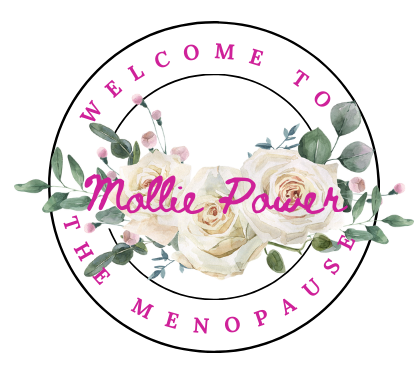
Menopause isn’t just a phase marked by the end of menstrual cycles, it’s also a time when many women notice changes in their body composition, including weight gain. This often goes beyond simple lifestyle choices like diet and activity level; it’s closely tied to physiological transformations. So, let’s talk about what’s actually happening inside your body during menopause.
Declining oestrogen levels play a significant role here. You see, oestrogen affects not just your reproductive system but also how your body metabolises fats and supports muscle tissue. When oestrogen levels drop, as they do during menopause, your body begins to store fat more easily, especially around the abdomen. This isn’t just about aesthetics; it has serious health implications, including an increased risk for heart disease and type 2 diabetes.
It’s not only about hormones, though. Age-related loss of muscle tissue, known medically as sarcopenia, contributes to a slowing down of your metabolism. During menopause, women can lose up to 40% of their muscle mass and around 25% of bone density. More than ever, excellent quality protein sources become crucial to help stabilise this loss and support overall wellbeing.
I (Mollie) want to emphasise that while menopause is a natural process, it’s essential to focus on muscle and bone health. This loss can have serious implications for your strength, mobility, and independence as you age. By understanding these changes, you can take proactive steps to mitigate their effects.
In the next section, we’re going to see how exercise and physical activity play a pivotal role in managing menopausal weight gain. And here’s a sneak peek: it’s not just about shedding pounds; it’s about building and preserving the muscle and bone mass that’s so valuable as you age. Stay tuned, because I’m going to show you some practical ways to get moving that fit your life and your goals.
Exercise and Physical Activity: Essential Strategies for Managing Weight
Now let’s talk about exercise. We all know it’s important, but during menopause, it becomes a game-changer. Aerobic exercise isn’t just a calorie burner; it can actually decrease body fat after menopause. So, whether it’s a brisk walk, a swim, or a bike ride, regular movement is your ally against unwanted pounds.
Strength training deserves a special mention. It’s not just for bodybuilders. When you build muscle mass, you’re giving your metabolism a boost. That’s because muscle tissue burns more calories than fat, even when you’re at rest. So, pick up weights or engage in bodyweight exercises; it could make all the difference to your waistline.
You’re going to want to mix things up with moderate and intense workouts. This combo is your golden ticket for burning off menopausal weight gain. If you’re new to this, consider swimming for your moderate activity, and then amp it up with running for a higher intensity kick.
But exercise isn’t only about fighting the flab. It’s equally crucial for maintaining your bone mass. As muscle mass declines, bones can lose density too. Engage in activities that put a healthy strain on your bones, like resistance training or even dancing, to keep them strong.
What’s the bottom line? Your routine should be diverse, enjoyable, and sustainable. In my opinion, finding physical activities that resonate with you makes staying active not just a necessity, but a pleasure. Remember, this isn’t solely about weight—it’s about overall health and wellbeing.
Dietary Adjustments for Menopausal Weight Management

You’re going to find out about tweaking your diet to better manage weight during menopause, and it’s not just about reducing calories. It’s crucial to focus on what you eat, not just how much.
In my opinion, nutrient-rich foods can make a huge difference. Think colourful vegetables, whole grains, and lean proteins. These foods not only help you feel full but also supply the essential nutrients that your body needs more of during this time.
Now what about the foods to limit? Highly processed items, sugary drinks, and baked goods can sabotage weight management efforts. They’re often high in calories but low in nutritional value, leading to weight gain.
Let’s be real about portions, too. Eating smaller portions helps prevent taking in excessive calories but choose something that resonates with you. Don’t worry too much about the occasional treat, what matters is the overall pattern of your diet.
Regarding visceral belly fat, it’s a common issue post-menopause due to low oestrogen levels. A diet balanced with fatty fish, legumes, nuts, and foods like tofu and yogurt can combat this problem. These foods contribute to satiety and are known to support hormonal balance.
If you want to boost your metabolism, hormone therapy might also play a role. An outstanding number of women find that oestrogen replacement can help regulate how their body distributes and stores fat. But I really hope that you consult a healthcare provider to weigh the benefits and potential risks specific to you.
Lifestyle Interventions and Support Systems for Long-Term Success
You’re going to find out about the undeniable connection between quality sleep and weight management. Prioritising sleep goes hand in hand with healthy weight and it’s something you can’t afford to overlook. In this context, tips on improving sleep hygiene and its benefits on overall well-being will be discussed.
Mindful eating isn’t just about choosing healthy foods, it’s also about listening to your body and understanding your hunger cues. By embracing this approach, you can prevent overeating and make more conscious food choices that support your weight management goals.
You can always adjust your approach down the road, but starting with the habit of keeping track of what you eat and your weight, can offer insights into your progress and areas where you might improve habits without feeling overwhelmed.
Don’t worry too much about doing this alone. Seeking support, whether it’s from healthcare professionals, support groups, or friends and family can make a significant difference in your journey. You’ll learn how to find the right kind of support and how to incorporate menopausal hormone therapy (HRT) as a part of your strategy if that’s the route you choose.
For further information or tailored advice, consulting with a healthcare professional is always recommended. They can offer guidance that is specific to your needs, ensuring you receive the best possible support during this transformative period. With the right strategies and support, you can thrive well beyond menopause. In addition to seeking professional advice, gaining insights into your hormonal health can be empowering. Consider the award-winning, at-home Hormone and Fertility test by Hertility. This comprehensive test includes an online health assessment, an at-home blood collection kit, and the expertise of a personal gynaecologist to analyse and deliver your results. Whether you are in the preliminary stages of Menopause or simply curious about your hormonal balance, Hertility’s at-home test can provide valuable information to guide your wellness journey. Take charge of your health, and gain clarity into what’s happening inside your body at any life stage.”
Your Story Matters! Share Your Experience
Dear Welcome To The Menopause family,
We’re all about sharing stories here, and we want to hear yours! After diving into our latest post, we’re eager to know how it resonated with you. Did you relate to a particular point? Maybe you have your unique take on the topic?
Let’s make this space a hub for diverse experiences. Drop a comment below and let’s spark a conversation. Your voice matters, and we can’t wait to read your insights!
Cheers to sharing and connecting!
